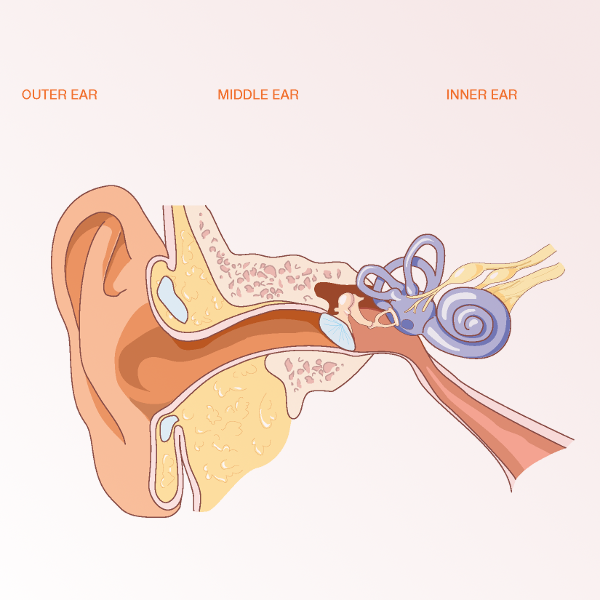Conductive Hearing Loss
Conductive hearing loss is typically characterized by a loss of hearing where the sound is not properly transmitted through the outer ear canal to the eardrum and small bones of the middle ear. This type of hearing loss usually involves a reduced ability to hear particular sound levels, or the ability to hear faint sounds. Conductive hearing loss typically occurs when sound through the outer ear and/or inner ear is disrupted. While only 10% of all hearing losses are conductive, it is important to contact your ENT doctor as soon as possible if you experience any type of hearing disruption. Conductive hearing loss is very treatable, and in many cases hearing can be completely restored.
Causes
Conductive hearing loss usually occurs as the result of a disruption in the outer or middle ear. Examples of disruptions that may result in your ENT doctor diagnosing conductive hearing loss include:
- Excessive earwax in the ear canal
- Fluid in the middle ear from colds
- Ear infections
- Allergies
- Poor eustachian tube function
- Perforated eardrum
- Benign tumors
- Infection in the ear canal
- Swimmer’s Ear
- A foreign body lodged in the ear
- Malformation of the outer ear, middle ear, or ear canal
While conductive hearing loss can be medically treatable and restored, those who have permanent conductive hearing loss will have the option of being outfitted with hearing aids or bone-conduction hearing aids by their ENT doctor.
Symptoms
If you or anyone you know is suffering from any of the below signs or symptoms, you should be sure to contact your ENT doctor immediately:
- Turning up the volume on the television or radio
- Asking people to repeat what they say
- Hearing in one ear better than the other
- Difficulty hearing on the telephone
- Ear pain
- Drainage from the ears
- Feeling of pressure or blockage in the ears
It is important to remember that, depending on the cause of conductive hearing loss, additional various symptoms may occur. Your ENT doctor will be able to perform a conductive hearing loss evaluation that will determine if you do in fact have this type of hearing loss, and whether it is permanent or not.
Treatment
As mentioned, hearing aids are viewed as an extremely effective treatment options for patients with conductive hearing loss. All treatment options will be evaluated and considered by your ENT doctor after examination of the ear.


